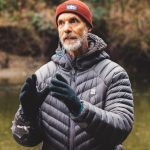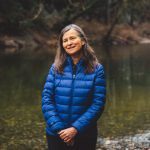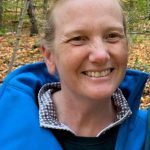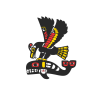
Danielle (Danni) Paydli, Executive Director

Tom Rutherford, Strategic Priorities Director

Heather Pritchard, Targets Director

Jill Thompson, Communications Director

Katia Bannister
Danielle (Danni) Paydli, Executive Director

Danielle Paydli is passionate about human rights, equity and recognizing the interconnectedness of our place in nature. She thrives on building relationships, developing innovative programming and creating linkages that help build strong, resilient, equitable and caring communities. As such, Danni was drawn to the Cowichan Watershed Board's collaborative governance model as a step toward decolonizing our collective ways of making decisions, broadening our understanding of the values we rely on to make those decisions, and improving how we work together as a community toward a different future. As a graduate of the University of Saskatchewan, Danielle has a rich background in advocacy and community development issues that range from access to, and health of, freshwater to supportive programming for youth with disabilities. Her career has also included carving pathways for new immigrants and refugees to Canada, preparing students and faculty for international and intercultural experiences, and working in the field of HIV/AIDS and gender equality in Malawi. When she isn't working you may find her swimming in the Quw'utsun river, diving off the dock at Fuller Lake, helping out at the local theatre, podcasting, or camping with her husband, two kids and goofy dog on any one of the beautiful beaches or forest sites on the island.
Tom Rutherford, Strategic Priorities Director

Tom worked with Fisheries and Oceans Canada for 35 years. He brings a strong technical background in salmon habitat inventory and restoration, stock assessment, stock enhancement and public outreach/citizen science. Tom has experience planning and implementing technical processes and partnerships with First Nations, providing scientific direction and guidance for program delivery activities, supervision of staff, and successful development of strategies to meet Sr. Government resource management objectives. Tom served as the Watershed Board's "top dog" (small pack) since 2016 and has now stepped back to enjoy more hiking time, but still serves as the CWB's Strategic Priorities Director, working to support our Partners in their ongoing efforts to ensure enough water for salmon by a) replacing the Cowichan Lake weir, and b) creating a whole of watershed solution to low flows in the Koksilah River, through a Water Sustainability Plan and other tools.
Heather Pritchard, Targets Director

Heather is a Registered Professional Forester with 30 years’ experience in natural resource management. She brings expertise in applying ecosystem-based management principles in forest and land management with focus on protecting community and domestic water sources and fish habitat. Heather has been supporting the Cowichan Watershed Board's 4 Technical Working Groups since 2019 to review, refine and revive the Board's 7 Targets for Watershed Health, and measurable progress indicators for each. Watch the Targets section of the website for the new Targets soon!
Jill Thompson, Communications Director

Jill comes from Eastern Maritime roots, and grew up in the Grand River watershed, Six Nations Territory. She moved to Vancouver Island in 1996, and has worked to engage communities in protecting threatened ecosystems ever since. Jill holds a Bachelor of Environmental Studies and a Bachelor of Arts, and has 30 years’ experience in environmental education and non-profit program leadership, fundraising, community engagement, and somewhat begrudgingly, non-profit administration. Jill is an experienced community builder who seeks out people who feel motivated to work collaboratively for an ecologically thriving and sustainable future, while having a bit of fun. She found the Watershed Board teeming with them!
Katia Bannister

Katia Bannister (she/her) grew up on unceded Pune’luxutth territories (Thetis Island) and spent her childhood and teenage years learning, volunteering, and community organizing in the Cowichan Valley (unceded Quw'utsun territories). Her childhood love of nature led her to start participating in ecological restoration projects and community organizing through youth climate strike movement as a teenager. She is now in her final year of her undergrad at the University of Victoria, studying Environmental Studies, Geography, and Indigenous Studies, with interests in everyday practices of sustainability, community-based food security initiatives, and land- and water-back work. Katia also loves canoe tripping and whitewater paddling and got her start canoeing on the Quw'utsun Sta’lo’ (Cowichan River) while she was in high school. Her relationship to water through paddling has been enormously humbling and impactful, reifying the strong passions for freshwater advocacy that she developed while working for the Canadian Freshwater Alliance as a teen. With her background in community outreach and engagement, she is extremely interested in helping people to connect with their watersheds in more experiential ways (like recreation) and how this can help to generate more care and action for watershed issues, as well as more holistic watershed governance practices.
 Email
Email



